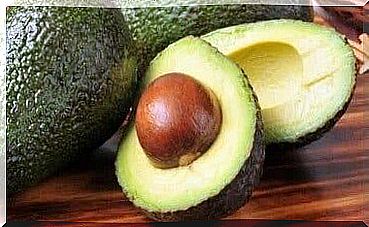3 Types Of Diets To Lose Weight Without Exposing Your Health

Miracle diets are not sustainable in the medium and long term and are harmful to health. For this reason, we’ll present three diets to lose weight that allow you to shed those extra pounds without putting your health at risk.
Diets to lose weight without exposing your health
Proper nutrition is critical to achieving a healthy, balanced weight. In this sense, it is convenient to follow eating plans that ensure that all groups of nutrients are obtained. Also, as noted in a study published in the Journal of Research in Medical Sciences , it is convenient to reduce calorie intake.
Each person’s nutritional and energy requirements vary according to age, lifestyle and health status. Therefore, the best thing to do is to consult a nutritionist so that he can guide you in choosing a plan according to your personal needs.
1. Ketogenic diet
While this diet has been controversial in the past, it is currently one of the best options for reducing body weight. This point is supported by research published in the International Journal of Environmental Research and Public Health .
The mechanism is simple: keep your carbohydrate intake to a minimum. It is a type of diet that does not restrict amounts, only one food group. The fact that it allows unlimited feeding in terms of volume facilitates its adherence.
The difficulty only exists in the first few weeks, when you may suffer from a minor withdrawal syndrome when you stop consuming sugar. However, when this effect wears off, if the diet is well planned, it won’t be difficult to follow it.
It is completely safe for health in the medium and long term, as long as the recommended daily amounts of protein are not exceeded: 0.8g/kg of body weight. There are some modifications that facilitate the results, such as restricting carbohydrate consumption from a certain time of day.
2. Intermittent fasting
It consists of alternating long periods of fasting (at least 16 hours) with others in which food intake is allowed.
According to a review published in the Annual Review of Nutrition , intermittent fasting is beneficial to health in the medium and long term, as it promotes weight loss and can improve metabolic health.
It has a very high adherence thanks to the hormonal system, which regulates the appetite hormone (ghrelin) right after we wake up. A good strategy is to just drink coffee on an empty stomach to promote satiety and make the fasting period more bearable.
It can be combined with a ketogenic or carbohydrate-restricted diet starting at a certain time of day to maximize results. There are different protocols: the least restrictive and the one that works best is 16:8, skipping breakfast or dinner. More aggressive ones include a full day of fasting every 2-3 days.
3. Atlantic diet
A version of the Mediterranean diet that emphasizes eating fish over meat, according to data from a study published in BMC Public Health . This diet does not use bread as an indispensable accompaniment or wine as a “healthy for the heart” food.
It is a common diet in the Nordic countries and guarantees the correct levels of vitamin D thanks to the consumption of oily fish and dairy products. Vegetables are an indispensable element and carbohydrates are not the base of the food pyramid. As fats, mainly oils and oilseeds are consumed, although it is also beneficial to introduce avocado.
It would be interesting to combine it with intermittent fasting to improve weight loss results. This is a heart-healthy diet. It is essential to ensure some variety of fruits and vegetables, and also to vary the types of fish (prioritizing the oily ones).

What is the best option among these diets to lose weight?
Among these three weight-loss diets, the most difficult to follow is probably the ketogenic diet. In many countries, including Brazil, the consumption of bread and carbohydrates is very common. Therefore, restricting the consumption of these foods can cause some initial difficulty. Also, during the first few days, a person may experience certain episodes of fatigue until they get used to ketosis.
Therefore, the Atlantic diet may be the most practical and comfortable of the three. It bears a fair resemblance to the Mediterranean diet, with the exception of increased fish consumption and not prioritizing grains and cereals. On the other hand, it considerably reduces alcohol consumption, a proven strategy for those looking to lose weight.
The effects will be enhanced if an intermittent fasting protocol is followed. While a 24-hour fast can be a bit aggressive for those who aren’t used to it, skipping breakfast is a useful method of increasing weight loss.
In any case, before trying any of these diets to lose weight, consult a doctor or nutritionist.








